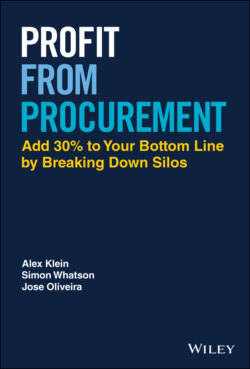Читать книгу Profit from Procurement - Jose Oliveira Valentede - Страница 12
The Birth of Strategic Sourcing—Dawn of a New Era…or Not?
ОглавлениеBack in the 1980s, a new way emerged for Procurement when General Motors placed its engineers and buyers in cross-functional teams and told them to “go to town” on components, changing the specifications, changing the drawings, bidding GM's combined demands in the market globally—and it worked magically and gave birth to “Global Sourcing.” This was soon replaced by “Strategic Sourcing,” but the concept was the same—work cross-functionally to problem-solve a chunk of the cost away, please. It's now the bread-and-butter of the auto OEMs and their direct suppliers.
This model is still widely held up as Procurement best practice today. But, outside of Big Auto, the large pharma companies, and select multi-national manufacturing companies, few have reached a truly “world class” level of sophistication in Procurement—neither in direct spend nor in the “indirects” arena. We all know what best practice looks like, because companies like GM and Ford have been doing it for half a century. At Ford Motor Company, the CPO sits on the board. Procurement is seen as career-enhancing, and the Procurement function has strong people who are able to execute cross-functionally. The savings even seem to be traceable to the P&L! And yet, it seems, most of us aren't able to replicate this success. Why is that?
One reason is simply that Ford and GM have no choice; they have to be good at Procurement. The Big Auto OEMs buy and assemble a huge volume of parts from around the globe, and they've been operating in an environment with very tight margins (with long periods of losses) for decades. That's why they're truly committed to Procurement from the top down, there is very strong Procurement leadership, there are high-caliber resources who rotate in and out of the function, the function is career-enhancing, working cross-functionally is in its DNA, and execution is of a high quality. All driven by economic necessity, which in many sectors, particularly growth-based and technology sectors, doesn't exist to the same degree.
A second reason why so many companies have failed to reach best practice is that they genuinely tried but failed to do it properly or fully. Some didn't get the right level of sponsorship or investment into the function that was required. Others yet, and there are many, have declared victory when they haven't earned it, which then blocks further progression in those companies.
